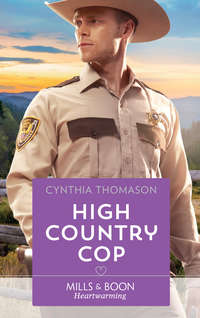
Полная версия
Firefly Nights
Oakes frowned. “He said it had something to do with a personal matter. Plus, he wanted to start a business back here where he grew up. Bought his own two-seater aircraft for taking aerial photographs. Unfortunately the fuel line ruptured, so that plan’s on hold.”
A shiver ran down Kitty’s spine. Her father often chartered personal aircraft in his capacity as owner of Galloway Groves. She always found an excuse not to accompany him on trips. The thought of being in a small plane was high on her list of least favorable ways to travel. And she figured that anybody who made a living flying one of those death traps ought to know he was only a loose screw away from disaster.
The sheriff opened his car door and stepped out. “Come on, folks. Campbell should be here in the hospital van any minute. Wanda says the motel key’s under the potted plant by the office door.”
Potted plant? Was he referring to that mildewed pickle crock with three spindly twigs sticking out the top? Kitty guessed he was because that’s precisely where he headed.
She got out and opened Adam’s door. When he remained in the car, she reminded him why they were here.
“Okay, already.”
They stood side by side staring at ten worn-out, run-down, dismal units broken by a peaked-roof office in the center. If a building could droop, this one did. In fact, the entire structure looked as if it was just waiting for the mercy of a wrecking ball.
* * *
“HOW YOU DOING back there, Captain Oakes?”
Campbell turned away from the familiar landscape flashing by the side window of the Spooner County medi-van. “I’m okay, Joe,” he said to the young man in the front passenger seat. “And you don’t have to call me captain. It’s been plain old Campbell for quite a while now.”
“Yeah, I know, but you’re still a hero around here. Everybody knows what you did over in Iraq.”
Campbell glanced down at the fiberglass splint that went from his ankle to his thigh and suppressed a grimace of disgust. Everybody knows what I did four days ago, too, he thought. A few years before, during Operation Iraqi Freedom, he had flown forty successful sorties over Baghdad in a Fighting Falcon. And then on Wednesday he crashed a single-engine Cessna Cardinal into a cow pasture. “My status as a hero, if I ever had one, is over,” he said.
Joe shrugged. “I still remember the stories about you. I think the town council should have had a parade or something when you came back home.”
Campbell focused out the window again, mostly to hide the smirk he couldn’t suppress. Joe didn’t understand. Nobody in Sorrel Gap would have a celebration for a prodigal son who’d been living on Matheson property in Raleigh. A renovated six-room carriage house on the lavish twenty-acre estate was a cultural world away from this small North Carolina town.
And the truth was, Campbell wouldn’t be here now except Diana Matheson had screwed him over one time too many. His future had come down to a choice between his pride and his cushy income, and Campbell had opted for pride. He’d left the estate just ahead of Diana, who caught a plane to Europe to get over her distress. Right. At least he’d been the one to say goodbye first.
The medi-van topped the hill and descended toward the Saddle Top Motel, a sad reminder of Campbell’s childhood and the glory days when Old Sorrel Gap Road was known as the Gateway to the Blue Ridge. Campbell could have afforded better accommodations in town, but so what? The building, as pathetic as it was, was his.
Still, as the Saddle Top came into view, Campbell experienced the same melancholy that gripped him whenever he returned to the cheerless structure struggling to survive in the gap. Only this time it was worse. This time, instead of just feeling as hopeless as the old motel was, Campbell would have to suffer the indignity of being hoisted into his living quarters by the medi-van driver and his helper.
And there would be no easy escape from the gap. Because of his leg, he wouldn’t be able to walk or drive away for weeks. And even after five hours of surgery and a half dozen rods and pins, the doctors still couldn’t tell Campbell for certain that he’d be able to walk without a limp, or ever pilot the Cardinal again. And that was assuming the plane’s landing gear and right wing could be repaired.
Unfortunately this mishap had occurred just when things had started to turn around for him. He had a half dozen contracts for aerial photographs stacked up on his desk. Now he’d have to tell his customers to wait out his iffy recovery or hire somebody else.
Campbell pressed his lips together as a painful draw of air stretched the muscles in his chest. Hard to believe that the dependable Fighting Falcon hadn’t suffered so much as a scratch on her steel-gray exterior during his entire deployment. Four months after he’d started Oakes Aerial Photographs, Campbell had watched the Cessna towed back to the airstrip in shambles.
The van pulled as close as possible to the covered walkway in front of the motel office. Even with two fellas supporting his weight, Campbell knew it wouldn’t be easy to get his six-foot-two, hundred-and-eighty-pound deadweight inside the building.
Joe Becker jumped out of the vehicle and opened the wide side door, giving Campbell a clear view of his uncle Virgil’s patrol car. Once he spotted Virgil at the breezeway where the washers and dryers were located, Campbell scanned the front of the motel for Virgil’s wife, Wanda. He’d never hit it off with Wanda and dreaded the thought of having to endure her interference if she followed through on her threat to take care of him.
But it wasn’t Wanda who appeared at Virgil’s side. It was a skinny purple pole of a woman with electrified blond hair that stuck out every which way. And a gawking, curly-haired kid who looked as if he’d just lost his puppy.
“Oh, great,” Campbell grumbled aloud. “You don’t think somebody actually wants to rent a room?”
Only one lone tourist, an old guy in a vintage Oldsmobile claiming he was experiencing America’s back roads, had stopped at the Saddle Top Motel in the six months Campbell had occupied it. Campbell had sent the fella on his way with an unappealing but very accurate description of the lack of amenities to be found here. He hoped Virgil wasn’t thinking he’d do him a favor by letting someone stay and contribute a bit of income. Campbell didn’t need the money. He needed peace and quiet.
The van driver pressed a lever under Campbell’s seat, and it swiveled smoothly toward the door. “I wouldn’t know, Mr. Oakes,” the man said to answer his question. “I can’t see anybody wanting to stay here.”
The two men each slipped one arm under Campbell’s knees and another around his back. With perfect timing coordinated by a command from the driver, they lifted him from the van. Less humiliating, he supposed, than a ride in a wheelchair, but only slightly so.
The men supported Campbell as he hopped on one foot the short distance to the covered porch. Virgil met him and looped Campbell’s arm over his shoulders to help him stand. The van attendants returned to the vehicle to get Campbell’s equipment, which included the detestable wheelchair, crutches, medical supplies and a bag of prescriptions. Campbell narrowed his eyes to get a look down the sidewalk at the couple standing in front of the breezeway. “Who are those people?” he asked.
“Oh, that’s Miss Kitty Watley and her son, Adam,” Virgil said. “They’re going to stay here awhile.”
Campbell wasn’t certain of much in his life at this point, but he was darn sure of his response to Virgil. “No, they’re not. Tell them to go into town to the Blue Ridge Lodge or the Sorrel Gap Chalet. Nobody’s rented a room at this motel for years.” He took a couple of quick hops toward his front door and regretted it immediately when his chest burned as if his broken ribs had erupted into flames. “There probably isn’t a clean towel in the whole place,” he said to Virgil after taking an agonizing gasp of air and letting his uncle support him.
“Well, there will be,” Virgil announced. “That’s what I’m trying to tell you. This lady and her kid are going to take care of you while you’re laid up.”
“Like heck they are...”
“Listen to me, Camp. You won’t have to lift a finger. Just sit back and let these two wait on you until you heal.”
Campbell’s sharp gaze connected for a quick heartbeat with the lady’s remarkably round eyes. She attempted a smile and wiggled her fingers from the pocket of a pair of hip-hugging, baggy purple pants. The kid set his lips in a hard, tight line and scowled as if Campbell was his worst enemy. “No deal,” Campbell said. “I don’t want anybody taking care of me.”
Virgil frowned. “You might want to reconsider, Camp. You need somebody and these two are willing.”
Campbell’s innate skepticism took over. “Oh yeah? And how much is this going to cost me? And why would anybody want to stay out here in the first place?”
“It’s not going to cost you anything,” Virgil said. “And they more or less got talked into volunteering as a legal penance.”
Campbell almost laughed. “A legal penance? Come on, Virg.”
“Sort of, yes. They’ve got a small debt to pay to society, and you’re their means to that end.”
Campbell shot his uncle a dubious look. He knew small-town justice worked in mysterious ways, but this was too quirky, even for Sorrel Gap. Was his uncle actually proposing that his incapacitated nephew harbor criminals desperate enough to agree to stay in what amounted to the Sorrel Gap Outback? “What’d they do? Murder somebody?”
Virgil chuckled, but the sound was forced. “Oh, nothing that bad.”
Campbell returned his attention to the desperadoes. The woman, from this distance, at least, didn’t look capable of tangling with a june bug. She worried a pile of dust with the toe of a sandal that had a heel high enough to make Campbell wonder how she didn’t get nosebleeds. She wasn’t looking at him anymore, and he took that as a sign that she was as uncomfortable with this situation as he was.
“Virgil, let’s have it,” he said. “The whole story. Where’d you find these two?”
The men from the van walked past them after bringing in the last of Campbell’s gear and wished the patient good luck. Virgil hollered to Miss Kitty Watley to wait outside, and he helped Campbell hobble through the motel lobby to the former manager’s quarters in back. “Let me get you settled,” he said, “and then I’ll tell you how all this came about.”
He eased Campbell into a tan leather recliner, one of the newer pieces of furniture Campbell had brought with him from the carriage house to brighten up his living quarters. And, with his attention firmly fixed on his uncle’s face, Campbell heard the tale of two Florida travelers down on their luck, a broken-down pickup on the side of the road and Adam Watley’s involvement with the grand opening of Value-Rite.
Virgil proceeded as if the matter were settled. “So, can I go get Kitty and the boy and make the introductions?”
Campbell shook his head. “Not so fast. I don’t like it, Virgil. I know you saw this as a temporary solution...”
“The only solution as I see it. I promised your dad I’d look after you, and you aren’t making my job too easy.”
Campbell held his temper. He’d told his father he’d deal with this on his own.
“You’re not Superman, Camp,” Virgil reminded him. “You need help.”
“Okay, I guess I have to admit to that, but how much assistance am I going to get from a lady who looks like an underripe eggplant and her outlaw son?”
Virgil waved his hand, dismissing Campbell’s concern. “You’ve got them all wrong. Kitty can do anything—cook, clean, do laundry. And her boy, why, he just stole that stuff to help out his mama. He’s a good boy.”
Campbell only believed about half of what Virgil was saying, since he’d seen the glower on the kid’s face, and he’d already concluded that Miss Kitty looked as if she needed more help than she could give. A good stiff wind sweeping off Saddle Top Mountain could carry her all the way down the gap. But on the other hand, a woman without any means of support who was driving an old pickup could probably use the work. Of all the people Virgil might have brought to his door, she’d likely be so grateful for a place to stay that she’d just do her job and mind her own business as he’d tell her to.
Campbell chewed on his lower lip. He hated being dependent on anyone. But for now, like it or not, he was. Maybe it wouldn’t hurt to give this living arrangement a chance—as long as the woman and her kid fed him and kept his clothes clean and otherwise left him alone. He thought of the alternative—Wanda Oakes force-feeding him collard greens and down-home advice—and decided that trying to make it work with the Watleys was a better solution.
“You win,” he said. “At least I won’t have to treat these strangers like family. But if it doesn’t work, you’re going to come get them.”
Virgil nodded. “Oh, absolutely.”
“Okay. Bring them in.”
CHAPTER THREE
KITTY HURRIED FROM the breezeway to meet the sheriff when he came out of the motel lobby. “How’d he take the news?” she asked, shaking her fingers, which had become numb from clenching them so hard. “Is he okay with Adam and me staying?”
“He didn’t like the idea at all, did he?” Adam said, his voice blatantly hopeful.
“He liked the idea all right—after I told him you could cook and clean, wash clothes and—”
“Okay, sure,” Kitty said. “How hard can all that stuff be?”
Virgil’s eyes rounded with shock. “What?”
“What I meant was that cooking and cleaning—it’s all second nature to me. Not hard at all.” Actually those tasks were second nature to Esmeralda, the housekeeper who’d been working for Owen Galloway for years.
“All right, then. Let’s go inside.”
Kitty and Adam walked ahead of the sheriff into the lobby. They passed a couple of tired old Danish chairs and a counter with a chipped Formica finish. Adam’s fingers wrapped around Kitty’s arm like a claw. “Nice place you picked here, Mom,” he whispered.
“I picked?” Kitty started to argue but realized the futility of bringing up Adam’s mistake again.
“Do you know the difference between a washing machine and a stove?” Adam asked.
“Hey, I’m not the one who confused a jacket for a shopping cart.”
They entered a living space just slightly larger than a typical studio apartment. Forcing her gaze to sweep quickly across the room, Kitty avoided for the moment the man whose presence was definitely the dominant feature. A queen-size bed covered with a colorful Navajo-print comforter sat next to an uncluttered desk. A knotty pine dresser held an assortment of men’s toiletries on a wooden valet tray situated precisely in the middle of a pair of polished brass lamps. Brass drawer handles sparkled on each of the nine dresser drawers.
An immaculate kitchen occupied one corner. The gleaming white appliances appeared new. Two doors at the rear of the room were closed. Kitty assumed one was a closet and the other led to a bathroom.
And in the middle of this space, there was a distressed leather sofa and a pine coffee table with a notebook computer on top. And then, because she could no longer avoid acknowledging the man at the center of this meticulous display of orderly living, Kitty focused on a wide leather recliner, which was filled quite respectably by Campbell Oakes.
He wore a Charlotte Bobcats T-shirt and navy blue cargo shorts. A shock of dark brown hair fell onto his forehead and partially covered a fresh bandage. One long bare foot at the end of a well-muscled leg extended over the chair’s footrest. Campbell’s other leg, buried in at least a three-foot length of cotton batting and fiberglass splint was supported by a pillow.
He stared at her with an overtly appraising green-eyed gaze that made her feel like squirming. She tried to smile, but her lips refused to obey the command from her brain. She wondered how Campbell Oakes, even with damaged ribs and a broken leg, had the capacity to render a person speechless and smileless. Just imagining him standing fully upright, dominating everything around him, brought a strange quiver to her stomach. It wasn’t like the trepidation she felt when she faced her father. It was strange in a different sort of way.
“All right, now,” Sheriff Oakes said cheerfully. “I’ll just make the introductions and be on my way. You young folks’ll get along just fine. Campbell, this is Kitty. Kitty, Campbell.” The sheriff reached over and tousled Adam’s hair. Adam flinched. Sheriff Oakes pretended not to notice. “And this towheaded youngster is Adam.”
Campbell nodded, but his intense scrutiny didn’t ease up. In fact, his gaze settled above Kitty’s neck and refused to move.
Assuming something must be amiss, she ran a hand through her hair, felt the blunt-cut strands prickle her palm and spring back to attention with what was left of yesterday’s gel. She drew her lips together. No lipstick, of course. What little she’d applied before hitching a ride on the watermelon truck had been chewed off in the Value-Rite parking lot. She ran her tongue over her teeth, searching for an embarrassing food scrap, and then remembered that raspberry lipstick and two swigs of coffee were the only things she’d eaten all day.
Campbell’s gaze wandered over her and ended in a puzzling frown. “Kitty, is it?” he said, returning his attention to her face.
“Yes.”
“You picked out a room to stay in?”
“No, not yet. Any one will do.”
A low, rumbling sound that might have started as a sarcastic laugh but ended as a stifled groan came from his throat. Obviously something hurt, bad. He pushed himself up in the chair. “Actually none of them will do, but it’s take it or leave it.”
“Don’t worry about that,” Virgil intervened. “I’ll put Kitty and the boy in the first room past the breezeway. That way they’ll be right next to the washing machines.”
Adam cupped his hand over his mouth. “Lucky break, eh, Mom?”
“Is there a phone in there?” Virgil asked.
Campbell nodded. “Doesn’t work, though. The only phone that’s hooked up is this one.” He pointed to a portable unit on the end table.
“No problem,” Virgil said with a chirpiness that was beginning to get on Kitty’s nerves. “I’ll stop at the phone company and have Kitty’s turned on. That way you can call her and Adam in their room anytime you need them.”
“I won’t need them much,” Campbell answered.
“You could just keep us on a leash and yank,” Adam said.
The sheriff laughed as if that was the funniest thing he’d ever heard and tried to tousle Adam’s hair again. This time Adam was too fast for him.
“Wanda was here yesterday,” Virgil said, sticking the hand that had swatted the air over Adam’s head into his pocket. He walked to the kitchen. “She stocked the cupboard and icebox for you.”
He opened the refrigerator door and stuck his head inside. “You’ve got milk, cola, orange drink, bologna, bread, bacon and eggs. You won’t starve.” He pointed to a broom closet. “I guess the cleaning supplies are in there, Kitty. Knowing my nephew, he’ll have stocked up on everything you need to keep the place sparkling.”
“Maybe he keeps the maid in there, too,” Adam mumbled, and Kitty shushed him.
“Anyhow,” the sheriff continued, “if you think of something else you want, just call the sheriff’s office and either my deputy or I will bring it out to you.”
Adam had moved to the cupboard, where he was investigating the food provided by Wanda Oakes. “Grape-Nuts and cornflakes? You got to be kidding! Where’re the Pop-Tarts?”
Kitty rushed over and shut the cupboard doors. “Don’t complain, Adam. Let’s have Sheriff Oakes show us our room and then we’ll come back and fix lunch for Mr. Oakes.” She glanced back at Campbell. “Is that all right with you?”
He squeezed his eyes shut and laid a hand on his stomach. Kitty figured he was weighing the advantages of trying to eat through the pain versus starving to death. From the look on his face, it was a tough call.
“I guess I could eat,” he said, opening his eyes again.
“Are you having pain?” she asked him.
“He sure is,” Virgil said. “He’s got, what is it, Camp? Three cracked ribs?”
“That’s what they tell me.”
“You’ve got pills for that pain, don’t you?” Oakes asked.
“Yep.”
“Make sure he gets those,” Virgil said to Kitty. “But for now, follow me.” He jangled the motel keys and nudged Adam to walk ahead of him. When they were in the lobby, Oakes leaned over to deliver a special message to Adam. “I’d advise you to rest up as much as you can today, Adam. Come Monday you’ll be working for Mr. Quint Cheevers over at the Value-Rite.”
Obviously the sheriff’s cheerfulness in front of his nephew hadn’t caused him to forget the real reason for this act of penance. And it was a stark reminder to Kitty that she and her son were definitely expected to fulfill their pledge as participants in this unique example of Sorrel Gap justice.
Kitty walked woodenly behind the sheriff and Adam. Maybe exhaustion and hunger were catching up with her. Maybe her commitment to a situation that could prove to be a disaster was making her stomach jump as if dozens of moths had been released inside. Or maybe it was Campbell Oakes himself. He hadn’t done anything other than scope her out with those cool green eyes. But it was enough to make her feel as if her legs were made of matchsticks, and the lobby of the Saddle Top Motel was suddenly the size of a football field.
When they finally reached the porch, Adam held Kitty back. This time there was no joking in his voice when he said, “Mom, you’ve got to stop this. That guy’s weird. You have to call Grandpa!”
She took a long, soothing breath of mountain air and straightened her spine. “No, Adam. We’re going to do what’s right even if we make a mess of it.”
“You mean even if it kills us,” he added.
She gave him what she hoped was a smile of encouragement. “Mr. Oakes is just unhappy because he’s hurting. He’ll warm up to us when we’ve been around for a while, you’ll see.”
It wasn’t a lie, exactly, but it certainly was wishful thinking.
* * *
SHERIFF OAKES UNLOCKED the door to unit number six, slipped the key off the ring and handed it to Kitty. “Here you go. I hope you and the boy enjoy your stay in beautiful Spooner County.”
“You won’t forget about our things, will you, Sheriff?”
“Tommy will bring them out to you at the end of his shift, about five o’clock. In the meantime, I expect you’ll find whatever you need in this room or in Campbell’s place.”
The sheriff stepped off the sidewalk and headed toward his patrol car. What remained of Kitty’s confidence threatened to walk away with him. A wind had kicked up, sending a film of sand over the sidewalk. Loose gravel pinged across the porch shingles—the desolate, lonely sound of a place forgotten by the human race. Kitty shivered and fought an urge to rush to the car and beg Virgil Oakes for other options.
Maybe Campbell Oakes wasn’t exactly weird as Adam said, and his injuries rendered him virtually harmless, but he seemed to have a chip on his shoulder large enough to fuel a bonfire. Plus, she feared that she would be a miserable failure at helping him. According to her ex-husband, Bobby, during the longest two years of her life—her marriage—she’d been a failure at nearly everything she tried. More recently, her father made her feel as if she wasn’t even capable of taking care of herself and her son, an opinion that had been substantiated in the past twenty-four hours. How was she going to take care of an invalid?
The sheriff set his elbow on top of the car. “I’m counting on you to keep your word, Kitty, and to make Adam keep his. Don’t make me regret giving you and the boy this chance.”
His implied warning only added to her guilt and uncertainty.
“That fella in there is my brother’s son. He’s been through a lot over the years.”
Right. Campbell was a war veteran. But he’d also worked for the wealthy Leland Matheson and made his home in Raleigh before coming to Sorrel Gap, so he hadn’t bedded down with land mines without a break. “I’ll look after him,” she said, and sent a silent prayer skyward that she’d succeed. “You take care of my truck, all right?”









